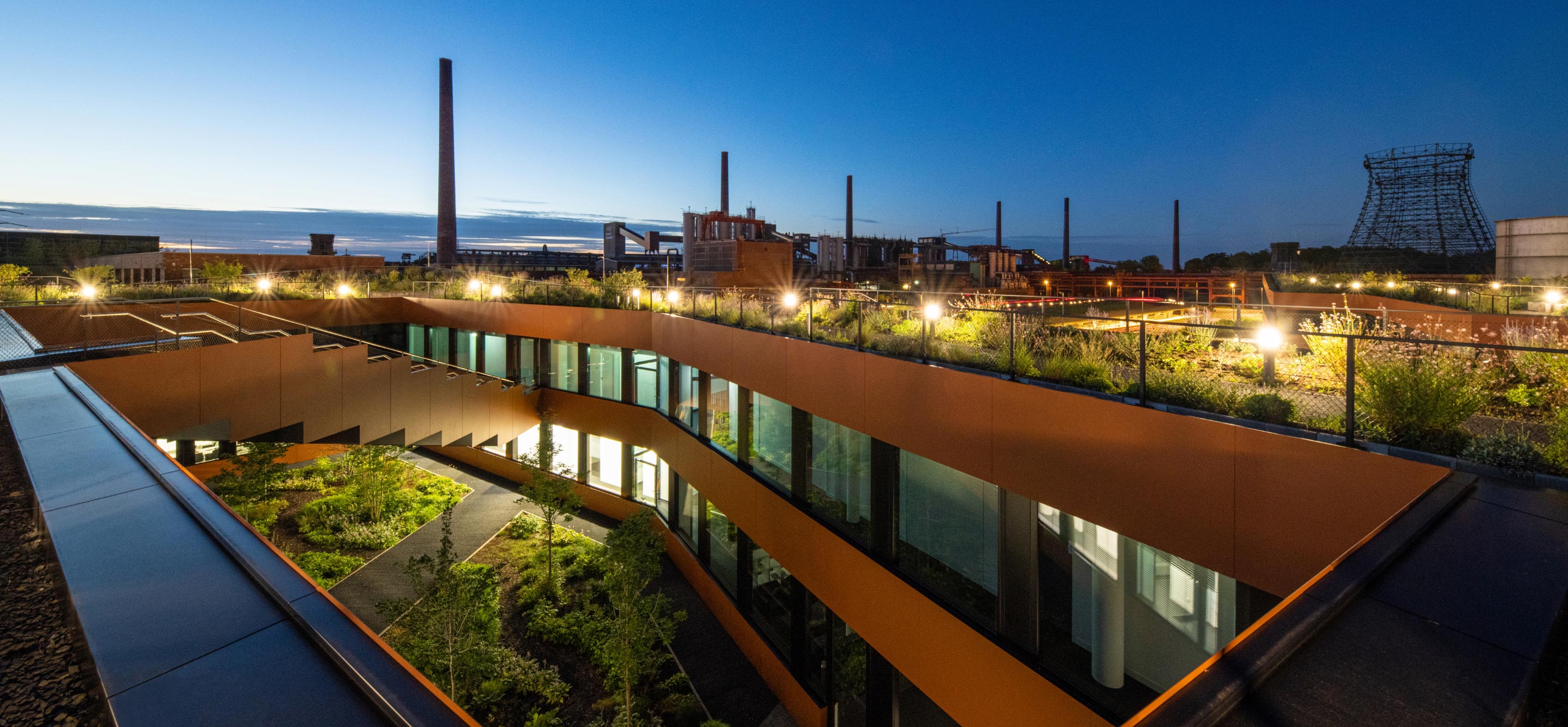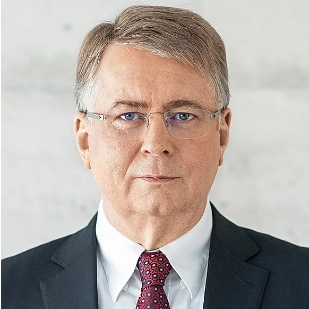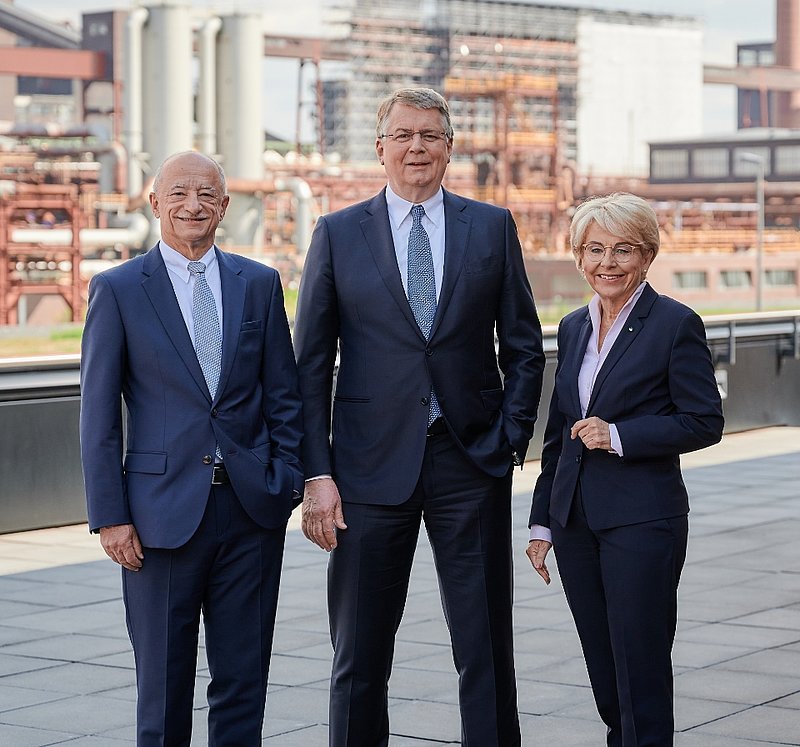
The RAG-Stiftung
The RAG-Stiftung uses the income from its broadly diversified investments to fund continuing obligations resulting from the end of hard coal mining along the Ruhr and Saar rivers and in Ibbenbüren. The socially responsible way in which an entire branch of industry has been wound up and the support following that are exemplary: It is an approach that is economically viable, ecologically responsible and geared closely to people. The RAG-Stiftung is firmly entrenched in 200 years of mining history – roots from which it imparts major impetus to enable a sustainable transformation and liveable regions today and in the future.
Purpose of the foundation
The original purpose of the RAG-Stiftung is to fund the perpetual obligations from German hard coal mining along the Ruhr and Saar and in Ibbenbüren. It therefore lastingly reduces the costs to the public purse caused by the need to protect and preserve an intact environment.
In addition to financing perpetual obligations, the RAG-Stiftung is tasked under its articles of association with assisting RAG Aktiengesellschaft in eliminating and avoiding the subsequent burdens on the environment and nature from 200 years of mining activity along the Ruhr and Saar and in Ibbenbüren.
The RAG-Stiftung also supports education, science and culture in connection with German mining. In this context, too, the RAG-Stiftung shoulders ecological and social responsibility and makes an important contribution to transformation and sustainability around the former mine sites.
Socially responsible end of German hard coal mining
The phase-out of German hard coal mining was completed at the end of 2018 when the last collieries closed. The basis for that was the “Coal Policy Agreement between the German federal government, the states of North Rhine-Westphalia and Saarland, Ibbenbüren and the IG BCE trade union” of 7 February 2007 and the German Hard Coal Financing Act passed by the German Bundestag on 20 December of the same year.
The RAG-Stiftung, as the owner of RAG Aktiengesellschaft, was obligated to accomplish the mutually formulated goals and discontinue subsidised coal mining in a socially responsible way. An entire branch of industrial sector that, at its peak in the 1950s, employed around 600,000 people in the Ruhr region alone was wound up by 2018 by means of qualification measures, alternative employment offers and early retirement schemes. That involved a process of transition unique even by historical standards – one that continues to shape the former mining regions to this day and whose effects will continue far into the future.
Perpetual obligations and inherited liabilities
A widely ramified system of shafts and tunnels remains underground even after the end of German hard coal mining. Hollows and faults have formed above ground, and the former mine sites are characterised by slag heaps, landmarks and industrial monuments that are visible from afar. All these manifestations of human intervention require sustainable care and management. That is the task of RAG Aktiengesellschaft, a wholly owned subsidiary of the RAG-Stiftung. RAG has made financial provisions for associated finite obligations, such as securing shafts and tunnels or settlement of claims due to mining-related damage. However, the RAG-Stiftung is responsible for financing the perpetual obligations related to pit water management, polder measures and ground water purification and earns the funds necessary for that from the income from its diversified investments.
Building up the foundation’s assets
The RAG-Stiftung invests its assets with risk and income diversification in mind: worldwide, across many asset classes and various degrees of liquidity, and in a granular, flexible and regular manner. Long-term income and returns from equity holdings and capital investments are the stable basis on which the RAG-Stiftung fulfils its mission under the articles of association, significantly reduces the burden on the public sector and delivers social value. The foundation’s assets have mainly been generated by coal mining itself in the regions. Evonik Industries AG, a globally successful speciality chemicals company, and Vivawest, one of the largest real estate companies in North Rhine-Westphalia, have their origins in mining or in the forerunners of today’s RAG Aktiengesellschaft. Financing of the perpetual obligations is additionally secured by guarantees from the two mining states and the federal government. With its balanced investment strategy and regular additions to its reserves, the RAG-Stiftung aspires to ensure that these guarantees are never utilised.
Support of education, science and culture
In addition to financing perpetual obligations, the purpose of the RAG-Stiftung is also to support education, science and culture in connection with German mining. Relevant activities and lighthouse projects of the RAG-Stiftung flank the process of transformation in the post-mining regions. A particular emphasis is on equality of opportunities, participation and access to education. In all its engagement in the field of education (with the exception of school projects or projects for a specific year’s intake), the RAG-Stiftung aims to promote the advancement of women by setting quotas of between 30 and 50 per cent. Its engagement is designed to cover the entire education chain, with an even distribution between training programmes and school projects. Other focal areas are support for STEM subjects, extracurricular education, scholarship programmes and early-childhood education in day-care centres. With its support for science and research in the field of post-mining, the RAG-Stiftung makes a valuable contribution to further enhancing knowledge about environmental protection and water management at the cutting edge of research. That includes the scientific work of the Deutsches Bergbau-Museum (German Mining Museum) in Bochum, the Technische Hochschule Georg Agricola (Georg Agricola University of Applied Sciences) and the Forschungszentrum Nachbergbau (Research Centre of Post-Mining/FZN). The RAG-Stiftung’s support is rounded off by its cultural engagement. The focus here is on communicating values and traditions, cultural diversity in the former hard coal regions as well as tasks related to the protection of historical monuments.



